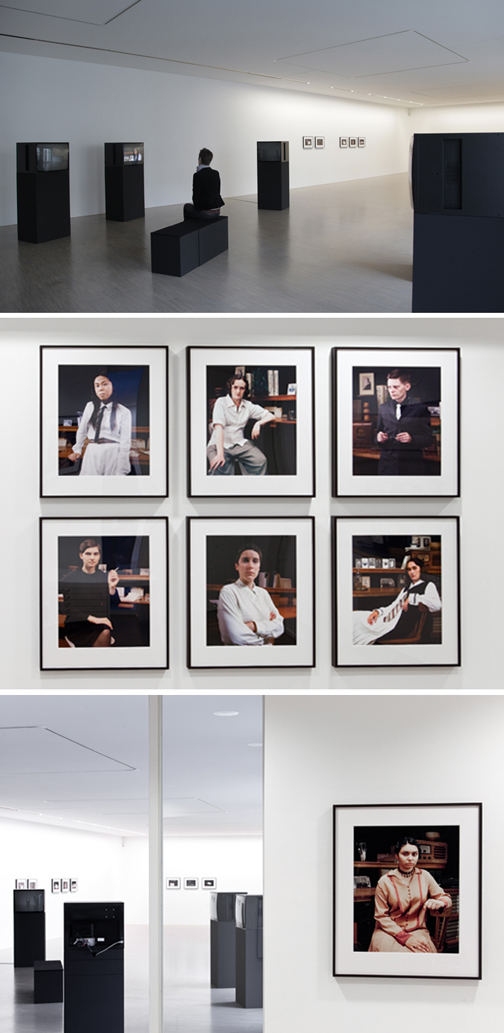"To be contemporary means to be "with time" rather then "in time." "Contemporary" in German is "zeitgenössisch." As Genosse means comrade, to be contemporary, zeitgenössisch thus can be understood as being a comrade of time — as collaborating with time, helping time when it has problems, when it has difficulties." —Boris Groys
The title of the new work "Comrades of Time" is a reference to a text by the art critic and media theorist Boris Groys. In Geyer's work, a group of young women is forming on seven monitors installed as part of a slightly shifted space in the exhibition. The women, who share the same desk, are contemporary in Groys' sense of the word, they are "Comrades of Time".
For "Comrades of Time", the artist has worked with seven New York women on historical text passages written by architects, writers, philosophers and political organizers from the vibrant years of the Weimar Republic. Speeches, letters and essays from 1916-1941 are the basis for condensed monologues assembled and composed by Geyer, which her protagonists speak or rather embody in seven distinct videos. The desk is reminiscent of Marcel Breuer's design for the Bauhaus and represents a link between the young women, suggesting a form of collective work. The voices of the protagonists oscillate between reflection and prophecy, while they speak about the political situation that surrounds them. The viewer is often, if not always actively, addressed as a comrade, friend or colleague. The political imaginary is a recurring theme and quest. The emotional identification and at the same time the alienation from the texts written by Helene Stöcker, Rosa Luxemburg, Alfred Döblin, Elisabeth Sussmann, Walter Benjamin, Alice Salomon, Sigmund Freud, George Grosz and others becomes clearly palpable in the women and their performative embodiment of history. Through this Brechtian rupture the artist is able to build a space of reflection where an individual internalisation of historical and political knowledge takes place.
The Weimar Republic, which reverberates like an echo throughout the work, was an era of a collectively awakening imagination in all parts of society. With looming extremist forces slowly forming and reconstituting, the new forces of the young republic tried to mobilise people by appealing to the capacities of their minds, and their responsibility to the community. By transferring the historical texts to the present time, the linearity of history is broken and the experience of historical times is brought to the present. As in previous works, Andrea Geyer realises an active form of remembrance in the here and now with "Comrades of Time", abstracted from the particular given contexts. This gesture produces closeness on the one hand, but on the other hand it makes the viewer aware of a distance.
view excerpts
view objects
view installations
